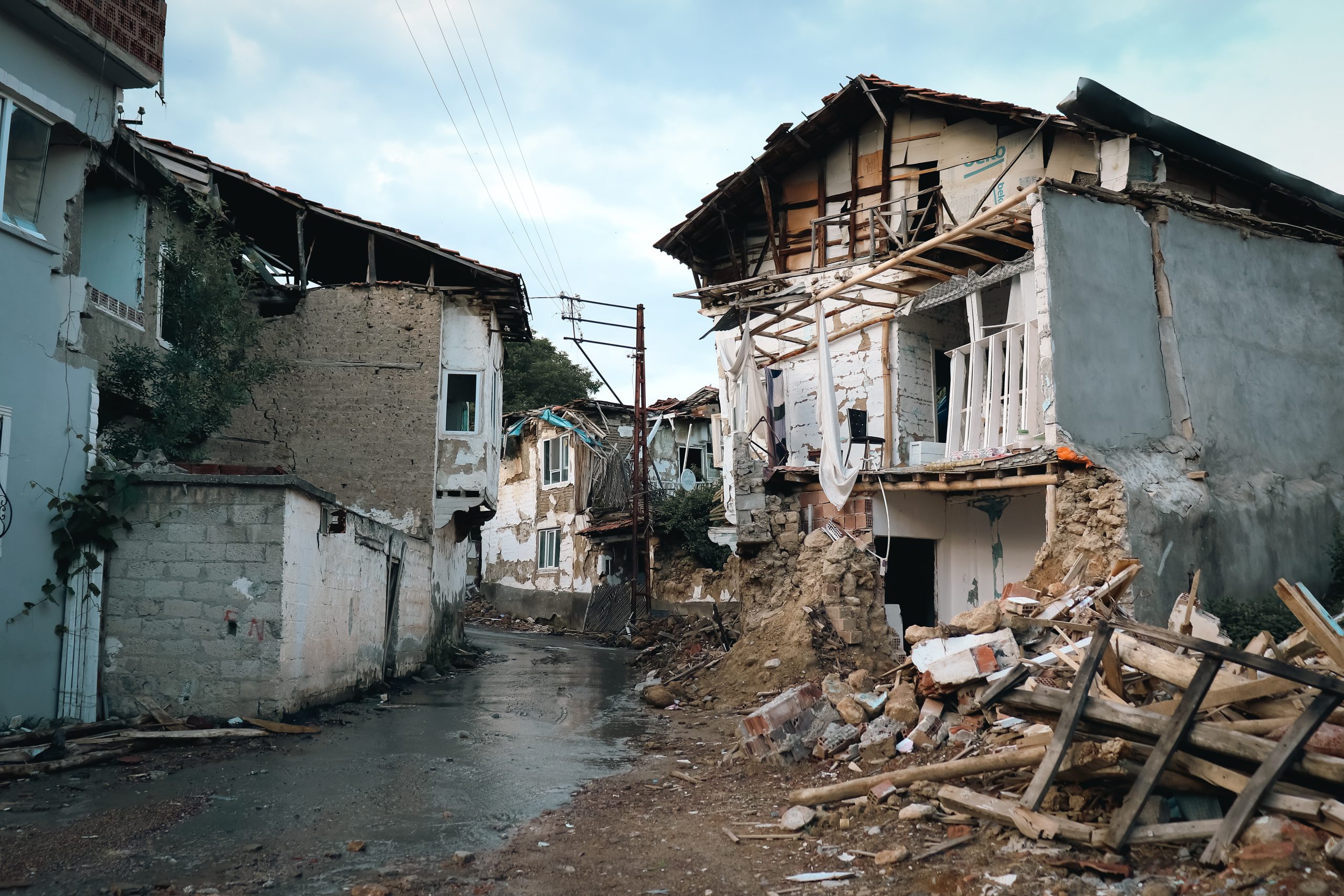
Barcelona Metropolitan Area (Spain)
The Barcelona Metropolitan Area is a conurbation in Catalonia, Spain, that consists of 36 municipalities covering 636 km2 and housing over 3.2 million people. As the largest metropolitan agglomeration in the western Mediterranean, it contributes significantly to Catalonia’s GDP and plays a crucial role in combating climate change.
Following the Paris Agreement, the Barcelona Metropolitan Area (AMB), an administrative entity that encompasses a group of municipalities in the Barcelona province, developed the Climate and Energy Plan 2030, which outlines strategies for energy transition, emission reduction, and adaptation to increase regional resilience.
The ICARIA project analyzes compound extreme events and their cascading effects on the region, using adaptation options from the Climate and Energy Plan as a starting point for the Spanish case study.
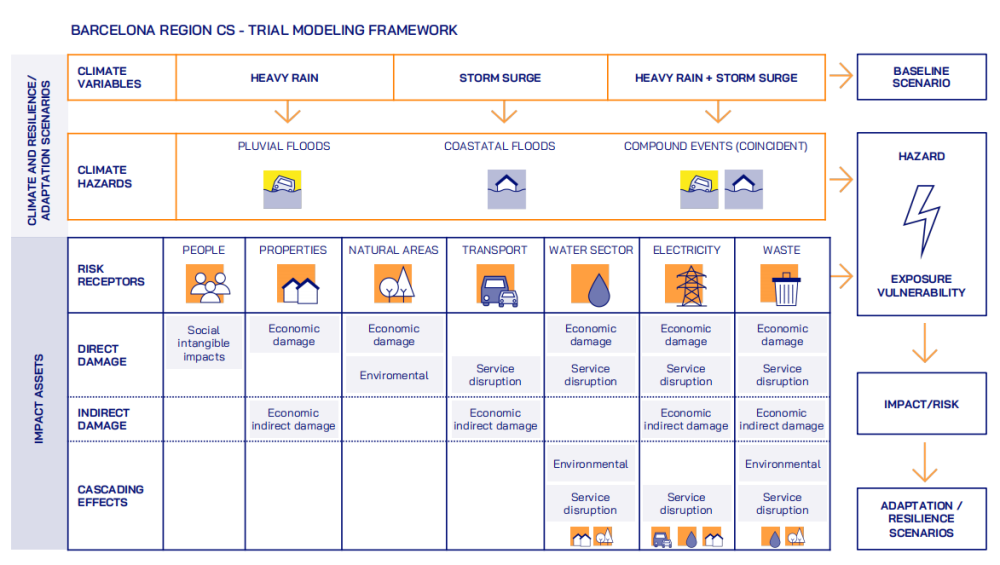
Salzburg (Austria)
Austria, a mountainous landlocked country in Central Europe, has experienced a 2°C increase in average air temperature since 1880. The country’s mountainous regions are already affected by global warming, with implications for the hydropower-dependent Salzburg region. Austria’s climate and energy strategy, “#mission2030,” aims for a carbon-free energy sector by 2050. However, the shift to solar and wind energy, along with challenges for hydro energy production, could increase the risk of energy supply instabilities and blackouts.
The ICARIA project investigates the interactions between climate change, energy production, and transformation, as well as the cascading effects on electricity grids, energy security, tourism, ecology, agriculture, forestry, and road transport.
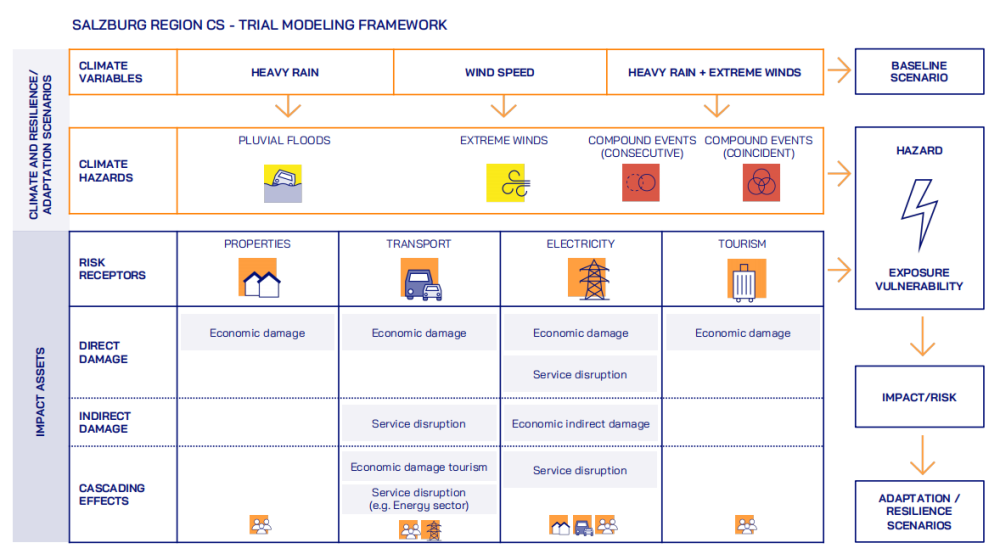
South Aegean Archipelago (Greece)
The South Aegean Region in Greece is an archipelago that faces more pronounced climate change effects compared to continental Greece and Europe. The region’s distinct geographical characteristics, including 52 inhabited islands, pose challenges in meeting local population needs such as water, food supplies, electricity, and healthcare. Seasonal population changes due to tourism further strain infrastructure and resources. Vulnerable infrastructure like ports and power plants are directly and indirectly affected by climate change, making disaster risk reduction and resilience crucial.
ICARIA analyses climate-related compound events and their cascading effects on services in the South Aegean, focusing on Syros, Rhodes, Kos, and Naxos island.
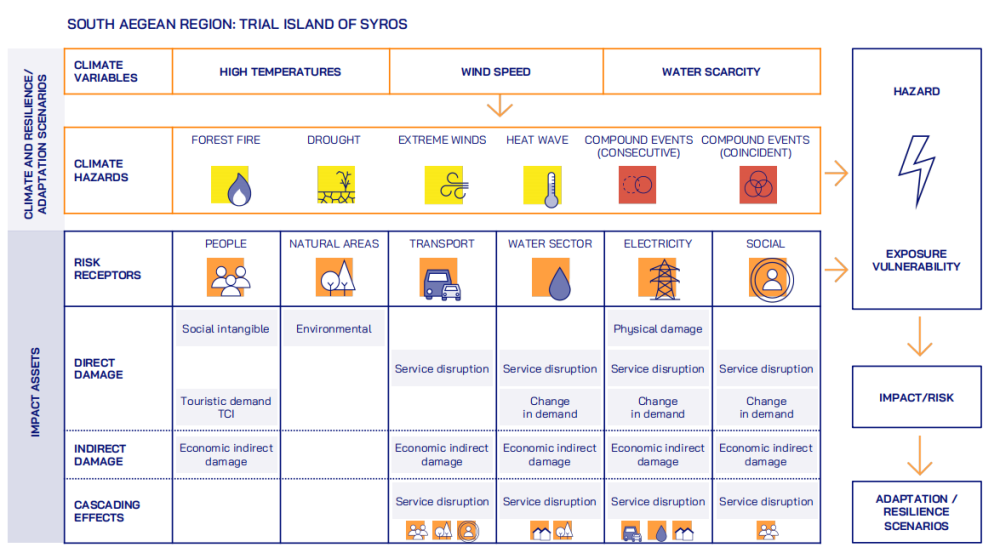
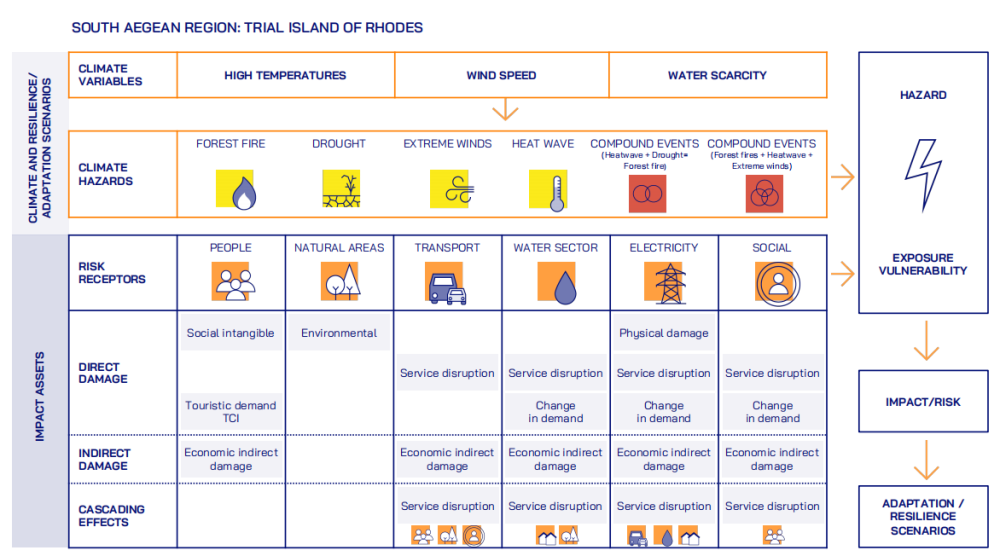
Follower regions
ICARIA also evaluates the feasibility of implementing the proposed solutions, initially across various case studies and subsequently in five additional chosen areas: Greater London in the UK; the Vega Baja district within Spain’s Autonomous Community of Valencia; central Macedonia, Greece’s South Aegean and Crete regions; Italy’s Campania region, including the Metropolitan Area of Naples; and Upper Austria.









